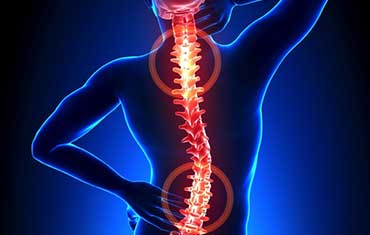NEUROPATHIC PAIN

Neuropathic pain is a complex and often chronic condition that arises from damage or dysfunction in the nervous system. Unlike nociceptive pain, which is caused by tissue damage or inflammation, neuropathic pain occurs when nerves themselves are damaged or malfunctioning. Understanding the symptoms and potential treatments for neuropathic pain is crucial for effective management and relief.
One of the hallmark symptoms of neuropathic pain is a burning, shooting, or stabbing sensation that can occur spontaneously or in response to stimuli that would not normally cause pain, such as light touch or temperature changes. This pain may be described as electric shock-like or tingling, and it can be constant or intermittent. Individuals with neuropathic pain may also experience numbness, weakness, or hypersensitivity in the affected area.
Treatment for neuropathic pain often involves a multimodal approach aimed at targeting both the underlying cause of nerve damage and the associated symptoms. This may include medications such as anticonvulsants, antidepressants, or topical agents that can help modulate nerve signaling and alleviate pain. Additionally, therapies such as nerve blocks, transcutaneous electrical nerve stimulation (TENS), or cognitive-behavioral therapy (CBT) may be recommended to help manage pain and improve quality of life.
In some cases, addressing the underlying condition contributing to nerve damage, such as diabetes, autoimmune disorders, or injuries, may be necessary to effectively manage neuropathic pain. Lifestyle modifications such as regular exercise, stress management techniques, and maintaining a healthy diet can also play a role in reducing symptoms and preventing flare-ups.
Seeking prompt medical evaluation and working closely with healthcare providers to develop a personalized treatment plan tailored to individual needs is essential for effectively managing neuropathic pain. By addressing both the underlying cause and the associated symptoms, individuals can find relief and improve their overall quality of life.
